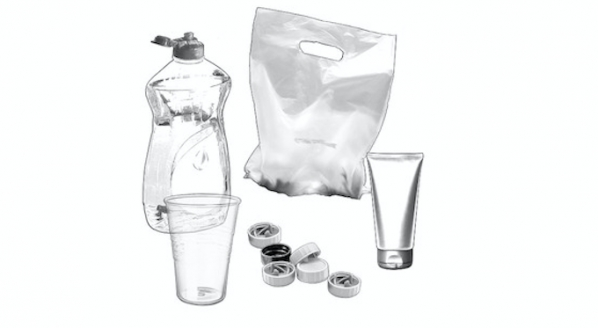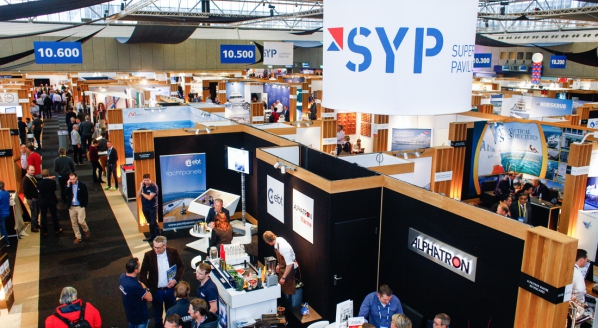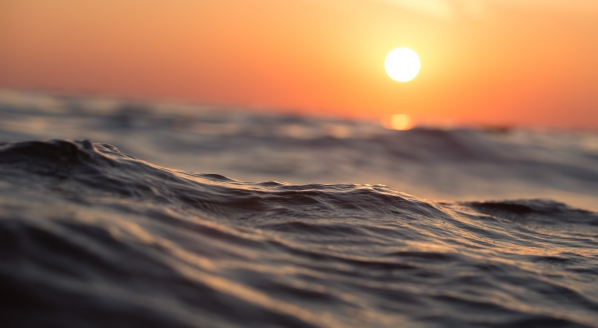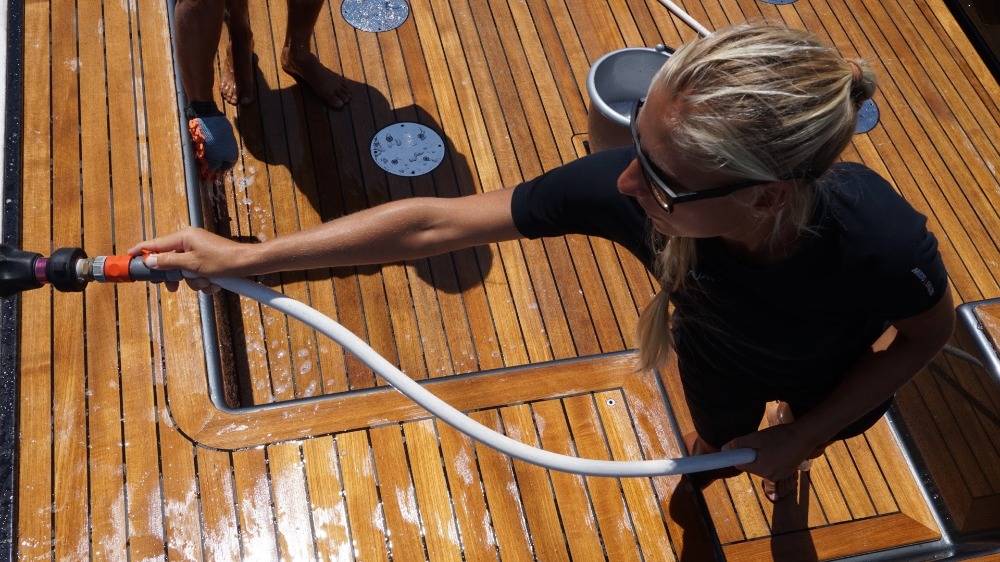Choosing eco-friendly cleaning products
Angus Johnston of Ecoworks Marine explains how to choose products that are kinder to the marine environment…
Today yacht crew are seeing increasing signs of the pollution we humans are inflicting on our oceans. While the obvious signs are the rafts of floating plastic waste, the pollution of toxic chemicals used in the marine and offshore industries is a much less visible but equally insidious concern.
Corals, sea grasses and the fauna and flora of our oceans play a vital part in keeping the marine environment healthy. They form part of a complex eco-structure that many species, including ourselves, rely on. Unless we help to protect them, these vital species will decline and potentially even disappear, which would likely bring increased scrutiny and severe legislation upon the marine industry.
But we can help to protect this environment with the choice of products we clean our vessels with. Many traditional boat chemical cleaners are pretty environmentally destructive, having been designed in an era when bleach was king and we knew little about the effects it had on our ecosystem. The manufacturers only had one aim in mind and that was solely to clean and make yachts shine, with little regard for the damage being done.
Many products claim a marginal eco-friendliness and biodegradability, but the bar is set very low.
Today very little has changed for the traditional products, except perhaps the dilution of their chemical content. Many products claim a marginal eco-friendliness and biodegradability, but the bar is set very low. Under EU rules, a product can claim to be biodegradable if only 20 per cent biodegrades in 28 days, which is called ‘primary biodegradability’. However, these products still contain a number of ingredients that are not only potentially harmful to the surfaces on which they are used – causing burning and discolouration – but also to the health of the user and the marine environment they drain into.
However, technology has moved on and now some marine cleaning products can legitimately claim ‘ultimate biodegradability’, which means that over 80 per cent of the product biodegrades in under 28 days. For example, Ecoworks Marine products all claim ‘ultimate biodegradability’ status by using simple and natural ingredients and, in some products, multiple strains of gram-positive bacteria and enzymes.
One of the ways to check on the eco-friendliness of the product you use is to read the Material Safety Data Sheet (MSDS). This will give you a good idea of what you’re dealing with, as it should lay down the hazards, precautions and response actions for a particular chemical. However, this isn’t always the whole story.
Every MSDS must consist of 16 sections – if they don’t then the product does not comply with EU, US or even ISO international standards and you’ll be surprised how many don’t. These standards continue through to the labelling of the product and, again, you’ll be surprised how many companies’ labels do not comply. Some through negligence and some to deliberately omit information. To be sure, just check the MSDS information against the label information.
One way to quickly check on the toxicity of the product you have is to look at section 9 of the MSDS and check what the pH of the product is. If it’s between 6.5 and 8.5, it’s pH neutral and safe but if it’s 2 (very acidic) or 13 (very alkaline), you need to take care as they will burn the surface, or you if you’re not taking care. Clothing is relatively inexpensive but teak, carpets, wood etc. is a different story and could be ruined by too acidic or alkaline products. Even composites can be damaged by the wrong product. Some products need to have a bacterial killing property for galley worktops and food preparation surfaces, so these will need to be slightly acidic or they won’t work, but do not need to be any lower on the pH scale than 3.
It is important to choose your products carefully – with the technology available today, you don’t need to buy any cleaning products that don’t perform, that aren’t sustainable and that aren’t competitive.
This year’s edition of The Superyacht Forum, running from 18-20 November at RAI Amsterdam, will focus on what the next generation of owners and crew will want from their superyacht experience. Day 2 of the Forum hears from a panel of experts from the field of green technology and energy efficiency to debate the topic of whether we can drive our future product to deliver zero emissions or reduce waste at all levels of the supply chain. For more information on the event, click here.
Profile links
Ecoworks Marine Preserve The Living Seas Ltd
NEW: Sign up for SuperyachtNewsweek!
Get the latest weekly news, in-depth reports, intelligence, and strategic insights, delivered directly from The Superyacht Group's editors and market analysts.
Stay at the forefront of the superyacht industry with SuperyachtNewsweek
Click here to become part of The Superyacht Group community, and join us in our mission to make this industry accessible to all, and prosperous for the long-term. We are offering access to the superyacht industry’s most comprehensive and longstanding archive of business-critical information, as well as a comprehensive, real-time superyacht fleet database, for just £10 per month, because we are One Industry with One Mission. Sign up here.
Related news


Sustainability: a core component of METSTRADE
Sustainability is top of the agenda at METSTRADE, highlighting the industry’s burgeoning focus on this vital subject
Technology

Biophilic design: a nod towards sustainability
As the design world leans towards biophilia, we take a look at what this means about the world we live in
Design

Sustainability and responsibility
Exploring the challenges the superyacht industry is facing to achieve its ambitious sustainability goals
Business

Sustainability and the categorical imperative
Has the superyacht industry's approach to sustainability, at times, been wrong?
Business
Related news
A sign of the times
5 years ago
Sustainability: a core component of METSTRADE
6 years ago
Biophilic design: a nod towards sustainability
6 years ago
Sustainability and responsibility
6 years ago
Sustainability and the categorical imperative
6 years ago
NEW: Sign up for
SuperyachtNewsweek!
Get the latest weekly news, in-depth reports, intelligence, and strategic insights, delivered directly from The Superyacht Group's editors and market analysts.
Stay at the forefront of the superyacht industry with SuperyachtNewsweek




